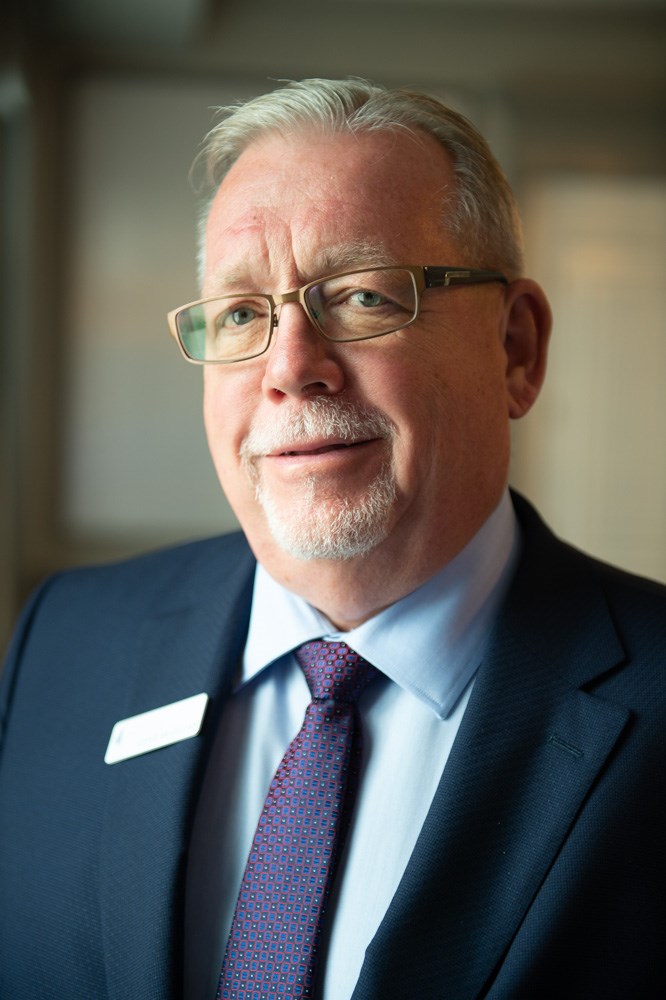Regina - What are the issues for the oilpatch in this federal election, as seen from the Saskatchewan Chamber of Commerce? Pipeline News asked Steve McLellan, the chamber’s CEO on Sept. 4, at the conclusion of an energy series speech by Bona Vista Energy president and CEO Jason Skehar.
McLellan said Skehar’s presentation was in partnership with the Canadian Association of Petroleum Producers “to increase our collective energy literacy.”
McLellan said, “Canadian people, particularly in Saskatchewan, need to understand the value of the sector, and when we talk to our candidates, in the upcoming election, or the provincial government that we’re very clear, this is a critical sector, and they have to make the right decisions going forward.”
Asked what are the issues, from the Chamber of Commerce’s perspective, McLellan said, “First is certainly access. We need to get our products out to the markets, through to tidewater and so on. So getting the pipelines built is a no-brainer. It’s a record we’ve heard many times, but we have to keep playing it.
“The other one, I think, is respect. I don’t think the Canadian government, or the provincial government in many provinces, I think ours does here in Saskatchewan, give the industry the full respect that they have.
“Many people would be shocked to see how many people still work, every single day, at high-paying jobs, quality, high-level expertise in the oil and gas sector. We can’t forget that. Those people go home at the end of the day safely, and feeling they’ve produced a good product. And yet the Canadian general public I’m not sure respects them for the work that they do. We need to gain that level of respect, and increase it.
“And I think we need to attract innovators into the sector. We need to start to ensure that the young minds, and the old minds, but certainly the young minds that are looking for things that are environmentally friendly. This is a great sector to be engaged in, because they’re investing in energy conservation every single day,” McLellan said.
“If our government can do that after the next election, we’re going to be in a much better spot.”
Regarding market access, he said, “We have two products – oil and gas. But we also have expertise. We now have oil and gas guys working around the globe. We also have innovations that are created here. We need to get them out to different jurisdictions, as was explained today by Jason (Skehar). The opportunity in second- and third-world countries, to take our technology and make energy there more effectively, and certainly more than using chunks of coal and chunks of wood. We can take our technology there. It’s expertise, and also the raw commodity. We’ve got to get it to the world.”
Earlier that day, the future of coal-fired power generation was discussed by the Estevan Chamber of Commerce. On that topic, McLellan said, “Coal has been, for a long time, and I think, as a natural resource, been an important one. We may stop using it to the extent that we have to produce energy, and I understand that. I think there’s some great expenditures and really great technology that has gone into clean coal. But it may not have the shelf life that many would want. But I don’t think we’re spending enough money, or enough effort, to determine what else we could use that resource for, that wouldn’t be as environmentally damaging as simply burning it. So I think that’s part of it.”
He said the communities of Coronach and Estevan have been hard done by. “I think our provincial government has sat by to some extent and watched what the federal government has done to them, instead of standing by and ensuring they’re part of the conversation. There’s a transition committee down there in the Estevan area, and I don’t think the provincial government has been as proactive and forthcoming with them as they could be, and I would encourage the provincial government to do that.
“I think the federal government has been there. I think there’s more they could do. But at the end of the day, it’s going to be about technological advancement. It’s going to be about ensuring there’s a transition from one type of the economy to another in those areas. As I’ve said to the Estevan Chamber, the sign at the entrance of the city says they’re the ‘Energy City.’ It doesn’t say they’re the oil and gas city, it doesn’t say they’re the coal city. So start to think about what that means, and what that could mean.”
He suggested that wind and solar energy might be avenues to look at.



